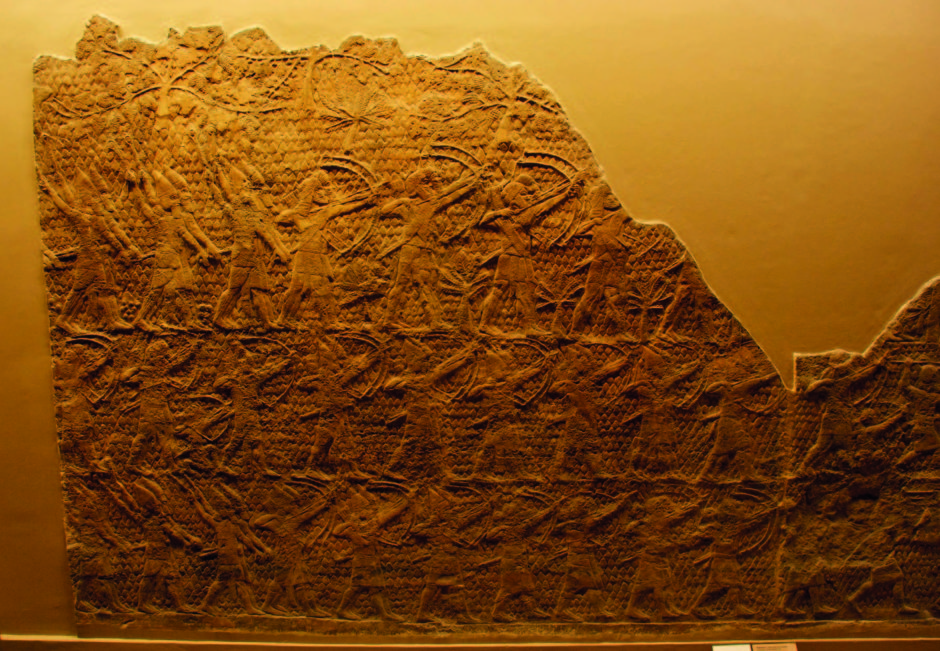TOWARDS the end of his life Elisha completed a task originally given to Elijah. When he was at Horeb, the mountain of God, Elijah had been told to do three things:
Then the LORD said to him: “Go, return on your way to the Wilderness of Damascus; and when you arrive, anoint Hazael as king over Syria. Also you shall anoint Jehu the son of Nimshi as king over Israel. And Elisha the son of Shaphat of Abel Meholah you shall anoint as prophet in your place” (1 Kings 19:15–16).
The only one of those tasks that Elijah actually completed was to anoint Elisha. Now his successor was to arrange for one of the other tasks to be performed, but not in person. He commissioned one of the Sons of the Prophets:
Anointing of Jehu
Get yourself ready, take
this flask of oil in your hand, and go to Ramoth Gilead. Now when you arrive at
that place, look there for Jehu the son of Jehoshaphat, the son of Nimshi, and
go in and make him rise up from among his associates, and take him to an inner
room. Then take the flask of oil, and pour it on his head, and say, ‘Thus says
the LORD: “I have anointed you king over Israel.”’ Then
open the door and flee, and do not delay
(2 Kings 9:1–3).

The young man did exactly as he was told. When he arrived in Ramoth Gilead he found Jehu amongst the captains of the army. He took him into the house and there he anointed him as directed by Elisha, with this instruction to Jehu:
Thus says the LORD God of Israel: ‘I have anointed you king over the people of the LORD, over Israel. You shall strike down the house of Ahab your master, that I may avenge the blood of My servants the prophets, and the blood of all the servants of the LORD, at the hand of Jezebel. For the whole house of Ahab shall perish; and I will cut off from Ahab all the males in Israel, both bond and free (2 Kings 9:6–8).
So the descendants of Ahab were to be wiped out—their wickedness had been extreme and could not be allowed to persist. Even Jezebel was not to be exempt: “The dogs shall eat Jezebel on the plot of ground at Jezreel, and there shall be none to bury her” (v. 10).
This prophecy came true with devastating accuracy. Before he was installed on the throne of Israel Jehu assassinated both Joram and Ahaziah, then ensured the death of Jezebel, her body being eaten by dogs before it could be buried. No wonder the Son of the Prophets was told to flee once he had anointed Jehu.
The Death of Elisha
Elisha does not appear again in the history of Israel for some time, not until he was on his deathbed. Joash (also known as Jehoash), one of the kings of Israel, went to visit the sick prophet. Joash reigned from 798–782 BC, about 15 years after the death of Jehu. He was distraught at the prophet’s impending death and cried “O my father, my father, the chariots of Israel and their horsemen!” (2 Kings 13:14). Elisha himself had used this phrase when Elijah was taken away.
The prophet asked Joash to engage in an enacted parable. “And Elisha said to him, ‘Take a bow and some arrows’” (v. 15). He instructed him to draw the bow, then he put his hands over the king’s hands, and asked for the eastward window to be opened. Then he told the king to shoot the arrow through the window. There was significance to all of this.
And he said, “The arrow of the LORD’s deliverance and the arrow of deliverance from Syria; for you must strike the Syrians at Aphek till you have destroyed them” (v. 17).
Syria had been Israel’s enemy for many years, and a complete victory would be a very welcome relief.
Then Elisha told the king to strike his arrows on the floor. Joash did so three times.
And the man of God was angry with him, and said, “You should have struck five or six times; then you would have struck Syria till you had destroyed it! But now you will strike Syria only three times” (v. 19).
To have struck more would have meant that Syria would be so completely routed that they would never again trouble Israel. As it was, Syria would continue to cause problems. Perhaps the king should have been more careful to check what the prophet meant before he followed the instructions.
Elisha died. It looked as though this was the end of an age of miracles, for the lifetimes of Elijah and Elisha were a time of great miracle working. In fact, it was not quite the end. Elisha was buried.
Elisha’s Last Miracle
And the raiding bands from Moab invaded the land in
the spring of the year. So it was, as they were burying a man, that suddenly
they spied a band of raiders; and they put the man in the tomb of Elisha; and
when the man was let down and touched the bones of Elisha, he revived and stood
on his feet (2 Kings 13:
20–21).
This was the third occasion when someone who had died was raised from the dead during the times of these two prophets.
The era and work of Elijah and Elisha ended as it had begun, with a miracle. It began with the announcement of an impending famine, and ended with a resurrection. There are so many lessons from their lives and times, about keeping faith with God, about obeying His word and trusting Him. Their lives may seem very long ago and distant from ours, but the lessons are right up to date, completely fit for the 21st Century. The important thing is to take note of them.
Mark Sheppard


